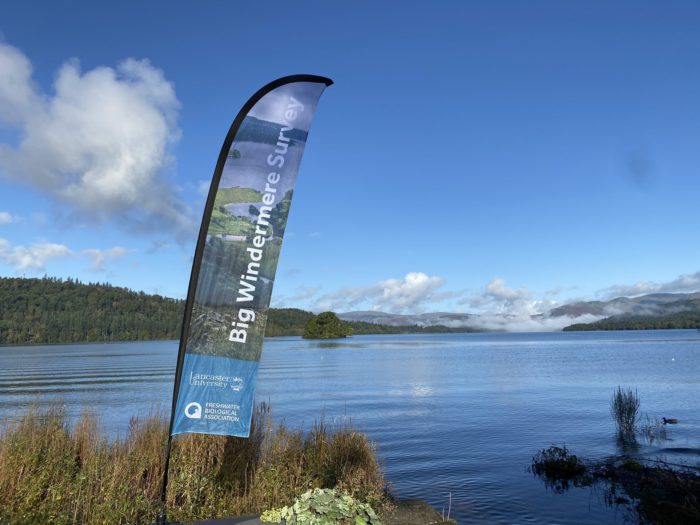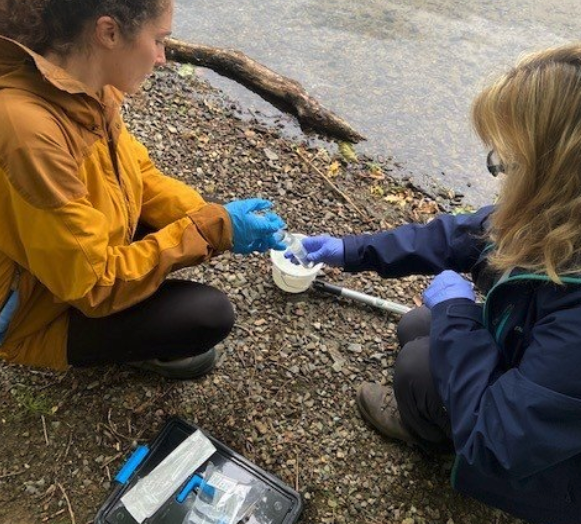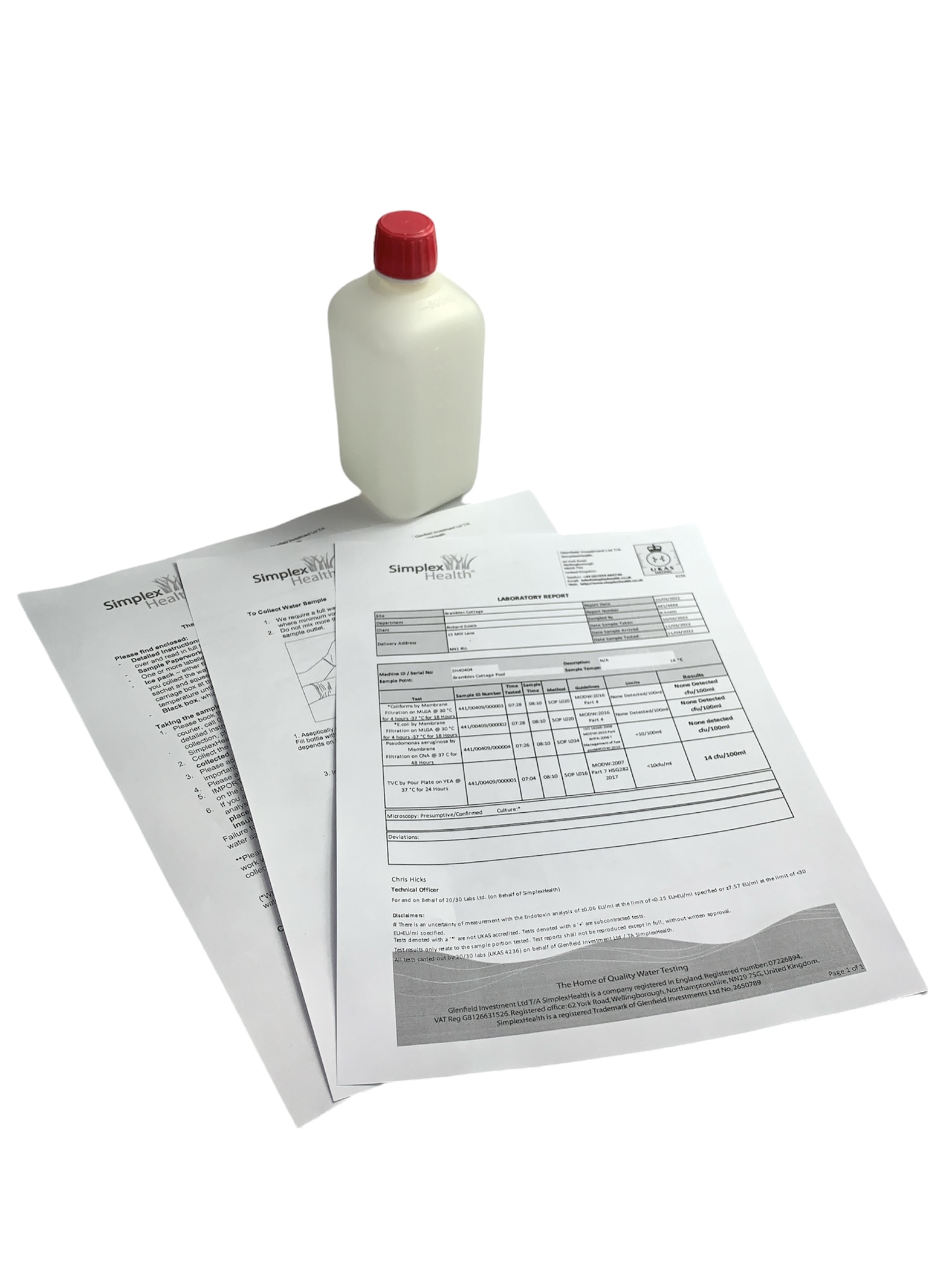
Launched in May 2022, SimplexHealth has been working with the Freshwater Biological Association (FBA) and Lancaster University on The Big Windermere Survey.
SimplexHealth have supported this exciting project by providing the bacterial analysis of the water samples. When the project started, SimplexHealth helped in identifying the bacteria that needed to be measured, providing valuable insights to map the water quality in various parts of the lake and the rivers flowing into the lake throughout the four seasons and over time.
Windermere is in the UNESCO Lake District World Heritage site – analysing and evaluating the bacterial quality of the lake is a key part in keeping an eye on the environmental health of the area. The lake is home to rare fish species and a popular water sports venue. This innovative initiative was started, because concerns have been raised following observations of algal bloom and bacterial pollution.
The Big Windermere Survey contributes to the scientific understanding of the water quality of the lake and supports initiatives to help improve the quality of the lake. Regular monitoring across different seasons and also over different years, helps to provide detailed understanding in changes over time.

During each round of analysis, volunteers have collected over 100 water samples, which were analysed by our laboratory for coliform, E.coli and enterococci. This provides a detailed look into the amount of bacteria from the various locations around the lake – helping to build a detailed map. These are presented in a detailed measurement, cfu (colony forming units), to show the exact level of bacteria identified in each sample.
Coliform/E.coli Analysis tests for coliform bacteria and Escherichia coli (E.coli) are the most important routine microbiological examinations carried out on water. These tests provide a sensitive means for detecting faecal contamination, for assessing raw water quality as well as the effectiveness of water treatment and disinfection.
Enterococci are commonly found in the faeces of human and warm-blooded animals. The presence of enterococci in recreational water is an indicator of faecal pollution and possible enteric pathogens.
For bacteria, around two thirds of samples from the catchment had relatively low concentrations, consistent with standards from the European Union Bathing Water Directive for ‘Excellent’ or ‘Good’ bathing water quality. Some samples shwowed high amounts of contamination together with some background contamination of other bacteria.
“The Big Windermere Survey is an innovative community freshwater science initiative. Together, volunteers, professional scientists and catchment managers will take Citizen Science to the next level in terms of supporting evidence lead conservation action for Windermere”
– Dr Louise Lavictoire, Freshwater Biological Association, Head of Science

“The survey, which is led by Lancaster University and the Freshwater Biological Association, conducts a one-day snapshot of conditions every season. Scientists said the higher phosphorus concentrations found in August 2023 were “potentially significant for the ecology of the lake, with phosphorus being one factor linked to the growth of algae within Windermere”. ” By Samantha Jagger BBC News

“…That is according to results of the fifth Big Windermere Survey, a citizen science project led by the University of Lancaster and the Freshwater Biological Association. It found that the elevated phosphorus concentrations observed in August 2023 are potentially significant for the ecology of the lake, with phosphorus being one factor linked to the growth of algae within Windermere.” by ITV News
![]()
“Lancaster University’s Big Windermere Survey revealed there was so much phosphorus in the water that a mere 3 per cent of the shoreline sites met “good” water quality status. The figure was 58 per cent in summer 2022″ by The Times
Which Laboratory Tests have been used to test Lake Windermere?

Bacteria: Coliform/E.coli, Enterococci (Lab Test): This laboratory test includes 2 important bacteria tests: Coliform/E.coli and Enterococci and is ideal to test open water (ie lake, river, pond or sea water).
– Coliform/E.coli Analysis tests for coliform bacteria and Escherichia coli (E.coli) are the most important routine microbiological examinations carried out on water. These tests provide a sensitive means for detecting faecal contamination, for assessing raw water quality, the effectiveness of water treatment and disinfection, and for monitoring the quality of potable water in distribution.
– Enterococci/Streptococci are commonly found in the faeces of human and warm-blooded animals. The presence of enterococci in recreational water is an indicator of faecal pollution and possible enteric pathogens.
Click here for the lake & river laboratory test for Coliform/Ecoli Bacteria and Enterococci.
For our full range of open water tests, click here.
Please contact us if you have a water testing project you would like us to get involved with.
SimplexHealth also work with other charities, action groups, local councils and various businesses analysing rivers, lakes and sea water. This includes testing for presence of sewage, river pollution testing, testing for open water swimming etc. Regular analysis provides detailed data of water quality over time, showing bacteria presence during different seasons. If you have a river or lake testing project you would like us to get involved in, please let us know.
For more information about The Big Windermere Survey and to volunteer click here.
